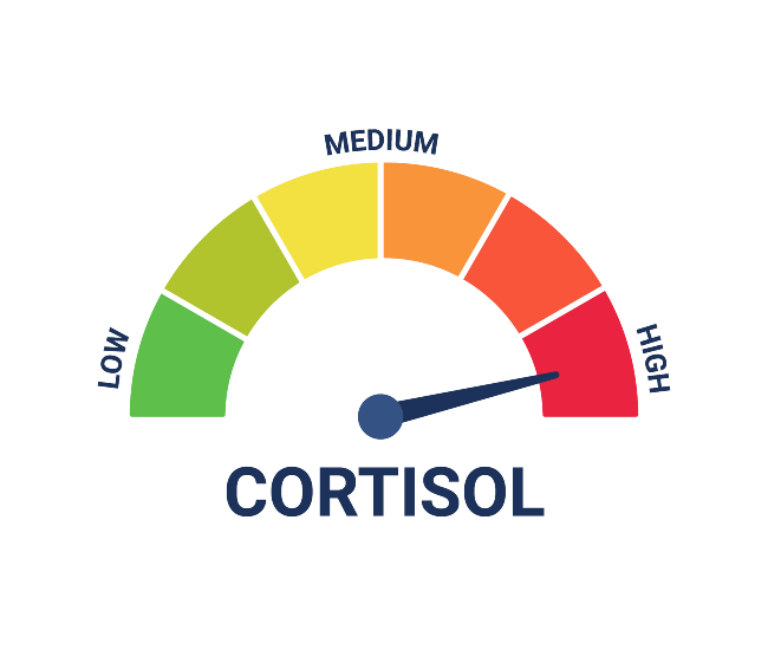What is the so-called cortisol-weight loss connection? Cortisol, the stress hormone, plays a vital role in the body’s response to stressful situations. When you experience stress, your body releases cortisol to help you cope. However, if cortisol levels remain high for an extended period, various bodily functions are adversely affected, including metabolism and weight regulation. In this article, we’ll delve into how cortisol affects your metabolism and provide practical tips for lowering cortisol levels to promote weight loss and overall well-being.
Understanding Cortisol and Weight Gain
High cortisol levels affect the body’s metabolism, among other functions, making it harder to lose weight. Here’s why:
- Cortisol triggers the release of glucose into the bloodstream to help the body cope with stress. Any excess glucose that isn’t used as energy is stored as fat, leading to weight gain.
- Excess cortisol can cause insulin resistance, making it harder for the body to regulate blood sugar levels. This leads to cravings, overeating, and weight gain, with the potential to develop type 2 diabetes.
- Cortisol affects the ability to build muscle. When cortisol levels remain elevated, muscle tissue breaks down, making it harder to rebuild muscle mass and lose weight.
How to Lower Cortisol Levels
Reducing stress is the key to managing cortisol levels and promoting weight loss. Here are some tips to reduce stress:
- Exercise regularly: Physical exercise triggers the release of endorphins, feel-good chemicals that stamp out high cortisol levels. Being physically active also builds muscle and boosts your metabolism, making it easier to lose weight.
- Get enough sleep: Sufficient sleep is essential for managing stress. Aim to get seven to nine hours of sleep each night. For the best results, go to bed and wake up around the same time every day.
- Practice relaxation techniques: Yoga, meditation, and deep breathing are examples of relaxation techniques that can reduce stress and lower cortisol levels.
- Eat a balanced diet: Strive to eat more fruits, vegetables, whole grains, lean protein, and low-fat dairy. At the same time, decrease your intake of processed foods, which tend to be high in sugar, salt, and unhealthy fats.
- Stay hydrated: Drinking plenty of water balances your body’s systems and promotes weight loss. The old adage is to drink eight cups of water a day, but the exact amount of water you need depends on your weight, physical activity level, and climate.
- Avoid caffeine and alcohol: These substances throw your body for a loop and increase cortisol levels, leading to weight gain and other health problems. Limit your intake to promote good overall health.
Clearly, cortisol plays a vital role in your body’s response to stress, but you don’t want your levels to be elevated more than necessary. By following these tips, you can manage your cortisol levels effectively and achieve your health and fitness goals.
At Pledge To Fitness, we provide services designed to support muscle gain and promote healthy weight loss. Our approach focuses on enhancing both physical strength and mental well-being to help lower stress and cortisol levels. Reach out to us today at (713) 401-2841 to create a personalized workout plan that will kickstart your fitness journey.



